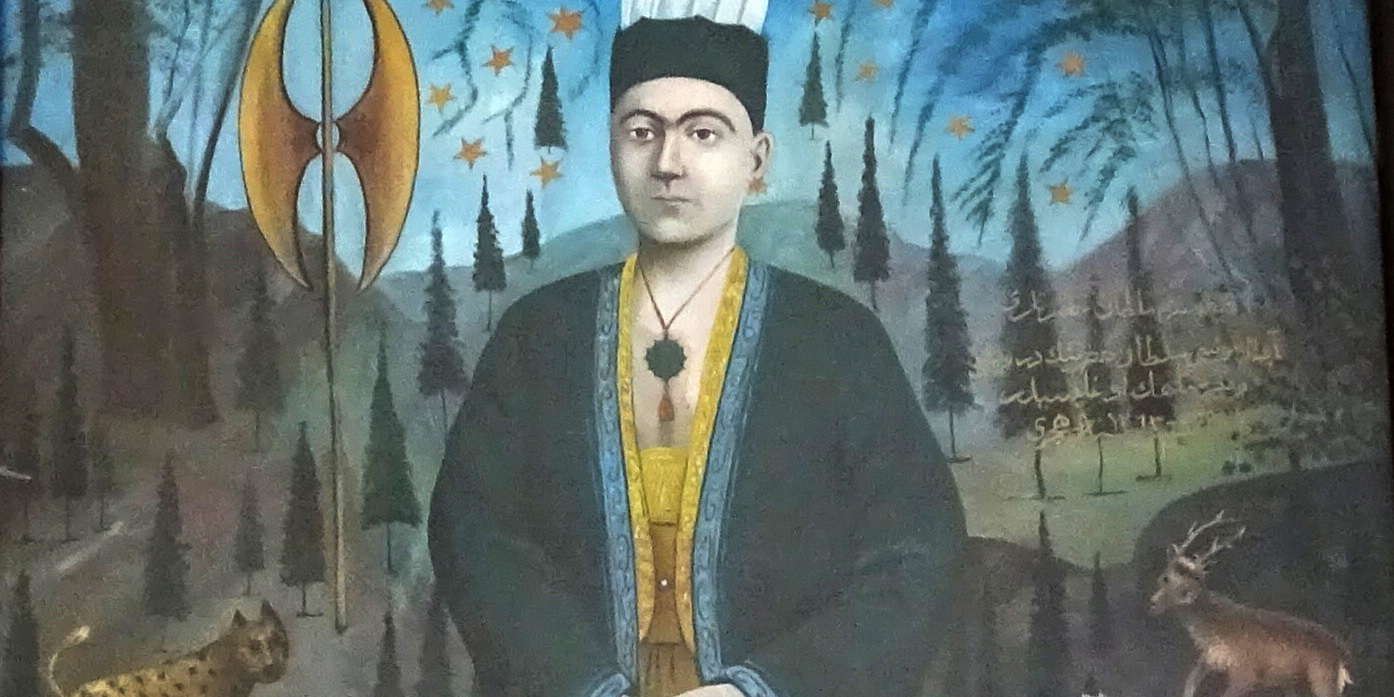A Sufi Novel of Late Ottoman Istanbul
| Set between elite households and a Sufi lodge, Yakup Kadri Karaosmanoğlu's 1922 novel Nur Baba was a provocative take on competing notions of religion, morality, gender, and romance in the dynamic world of late Ottoman Istanbul. In this episode, we speak to Brett Wilson, author of the first-ever English translation of Karaosmanoğlu's controversial classic. We discuss Yakup Kadri's ethnographic approach to his subject, its mixed reception, and the insights it offers about modern Turkish culture. We also discuss the joys of translation, and its importance for students of Ottoman history today.
 | Click for RSS Feed | 
|

|
Set between elite households and a Sufi lodge, Yakup Kadri Karaosmanoğlu's 1922 novel Nur Baba was a provocative take on competing notions of religion, morality, gender, and romance in the dynamic world of late Ottoman Istanbul. In this episode, we speak to Brett Wilson, author of the first-ever English translation of Karaosmanoğlu's controversial classic. We discuss Yakup Kadri's ethnographic approach to his subject, its mixed reception, and the insights it offers about modern Turkish culture. We also discuss the joys of translation, and its importance for students of Ottoman history today.
Contributor Bios
 |
M. Brett Wilson is Associate Professor of History at Central European University in Vienna and the Director of the Center of Eastern Mediterranean Studies. He is the author of Translating the Qur’an in an Age of Nationalism: Print Culture and Modern Islam in Turkey (Oxford University Press, 2014) and the editor and translator of Nur Baba: A Sufi Novel of Late Ottoman Istanbul (Routledge, 2023). |
 |
Brittany White is a doctoral student in the Department of History at the University of Virginia. Broadly, she is interested in the African Diaspora in former Ottoman territories. |
Credits
Episode No. 559
Release Date: 25 January 2024
Sound production by Brittany White
Music: Chad Crouch; A.A. Aalto
Bibliography and images courtesy of Brett Wilson
Release Date: 25 January 2024
Sound production by Brittany White
Music: Chad Crouch; A.A. Aalto
Bibliography and images courtesy of Brett Wilson
Further Listening
 |
Melih Levi | 261
8/23/16
|
Translating the Ottoman Novel |
 |
Elizabeth Graver | 544
5/13/23
|
Kantika: from History to Fiction, a Sephardic Journey |
 |
Lale Can | 191
4/18/15
|
Central Asians and the Ottoman Empire |
 |
Burcu Karahan | 448
2/7/20
|
Freedom and Desire in Late Ottoman Erotica |
 |
Bernt Brendemoen | 091
2/1/13
|
Translating Pamuk |
Images

Large oil painting depicting Kaygusuz Abdal surrounded by animals. Dated 1263 AH (1844 CE). Reception room in the World Headquarters (Kryegjyshata) of the Bektashis, Tirana, Albania. Photo © Sara Kuehn, 2019.

An axe (teber) with verses from the poet Hatayi. “Dervish Ax” Source: The MET, Rogers Fund, 1904, 04.3.467 (https://www.metmuseum.org/art/collection/search/25577)

Waterfront mansions on the Bosphorus at Kanlıca, Istanbul taken between 1903– 1905. Somewhat lacking in paint, the Saffet Pasha Yalısı is visible, the second from the right. Source: Anonymous, Courtesy of the Suna ve İnan Kıraç Vakfı Fotoğraf Koleksiyonu / Suna ve İnan Kıraç Foundation Photograph Collection, Catalog no: FKA 006263.

A dervish with begging bowl (keşkül) (ca. 1895). “Derviche Bectachie,” by Mihran Iranian. The dervish carries a begging bowl and wears a belt with a teslim taşı (“stone of surrender”), a distinctive Bektashi object whose twelve points represent the Twelve Imams. Source: Courtesy of the Suna ve İnan Kıraç Vakfı Fotoğraf Koleksiyonu / Suna ve İnan Kıraç Foundation Photograph Collection, Catalog no: FKA 000617.
Bibliography

Kara, Cem. Grenzen überschreitende Derwische: Kulturbeziehungen des Bektaschi Ordens 1826–1925. Göttingen: Vandenhoeck & Ruprecht, 2018.
Maden, Fahri. “Çamlıca’da bir Erenler Durağı: Tahir Baba Tekkesi.” In Uluslararası Üsküdar Sempozyumu VII: 1352’den Bugüne Şehir, edited by Süleyman Faruk Göncüoğlu, 220–250. İstanbul: 2012.
Birge, John Kingsley. The Bektashi Order of Dervishes. London: Luzac, 1937.
Göknar, Erdağ. “The Novel in Turkish: Narrative Tradition to Nobel Prize.” In The Cambridge History of Turkey, Volume 4, edited by Reşat Kasaba, 472–503. Cambridge, UK: Cambridge University Press, 2008.
Wilson MB. THE TWILIGHT OF OTTOMAN SUFISM: ANTIQUITY, IMMORALITY, AND NATION IN YAKUP KADRI KARAOSMANOĞLU’S NUR BABA. International Journal of Middle East Studies. 2017;49(2):233-253.











Comments
Post a Comment
Due to an overwhelming amount of spam, we no longer read comments submitted to the blog.